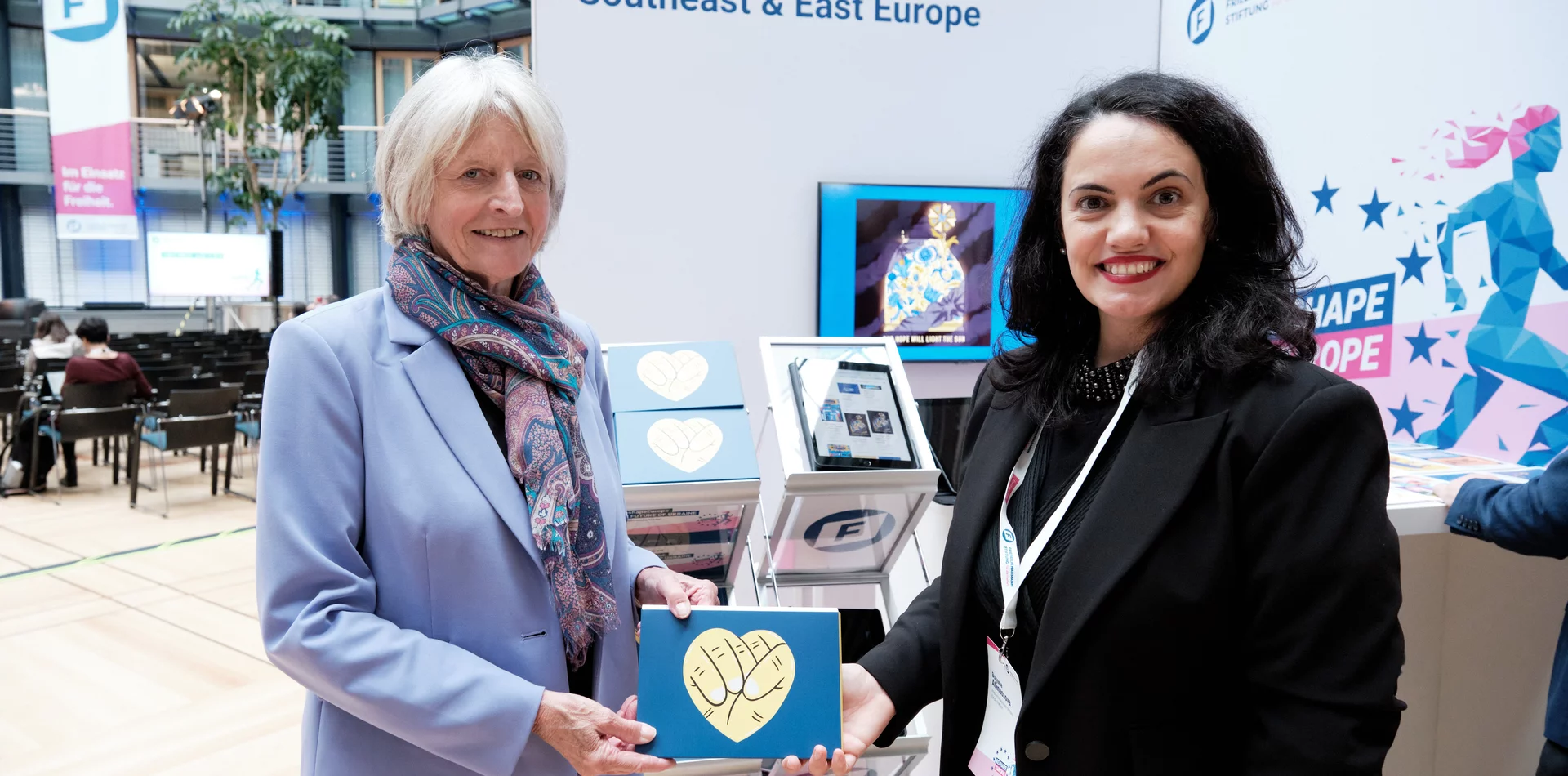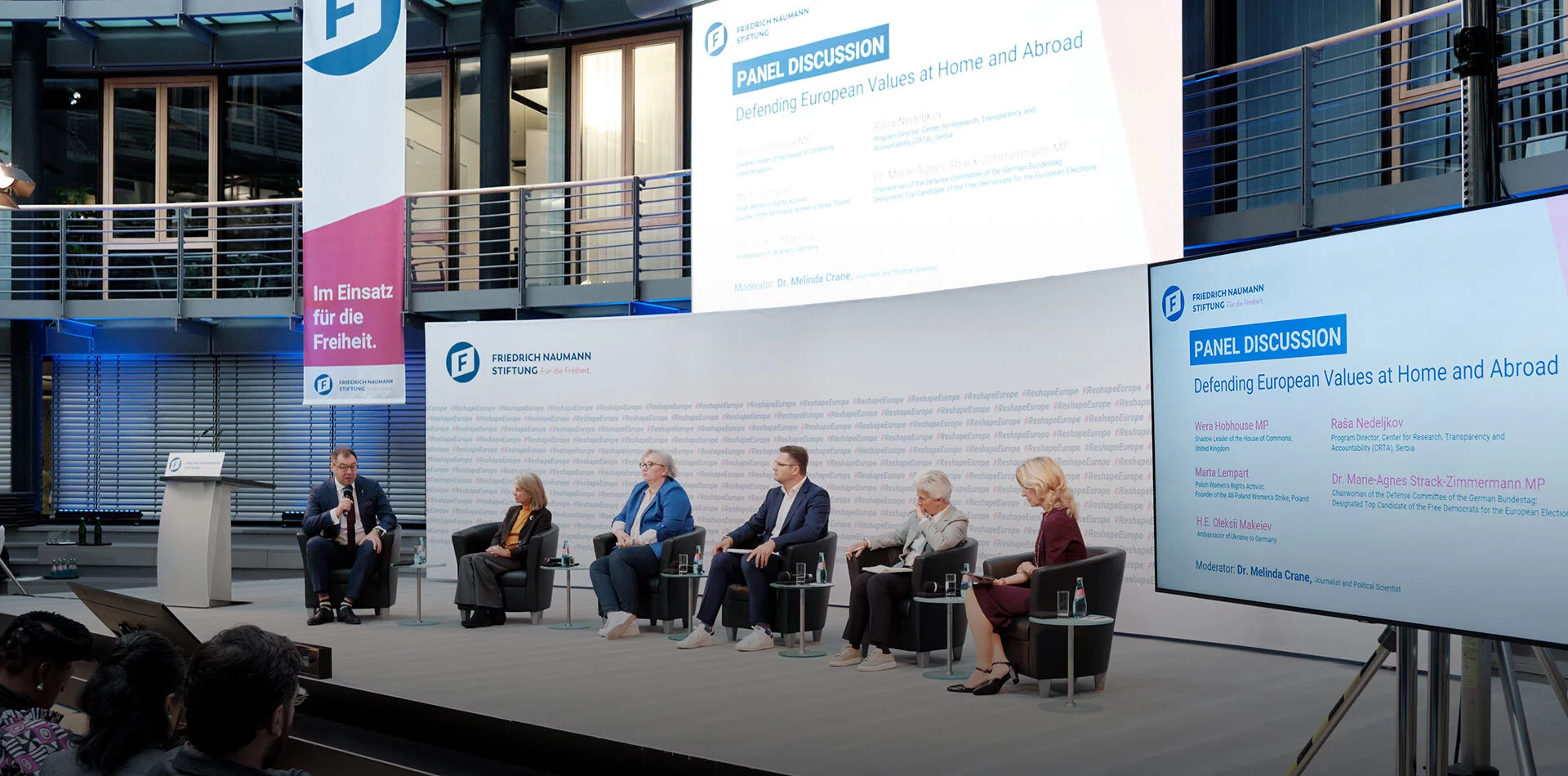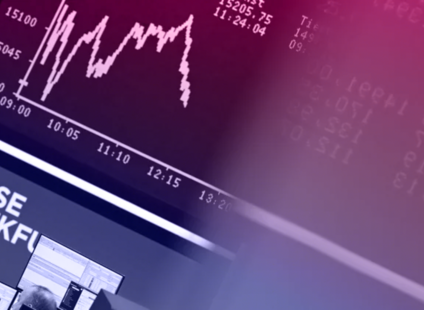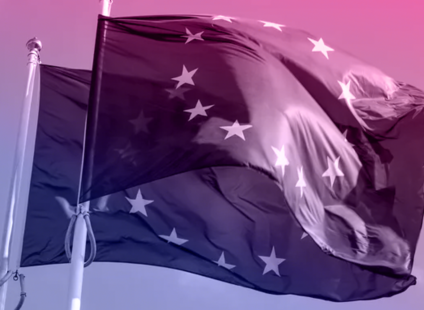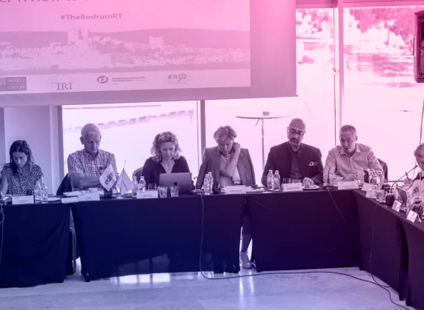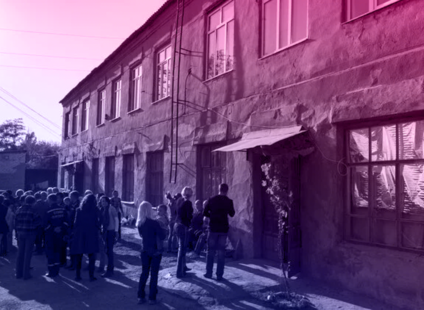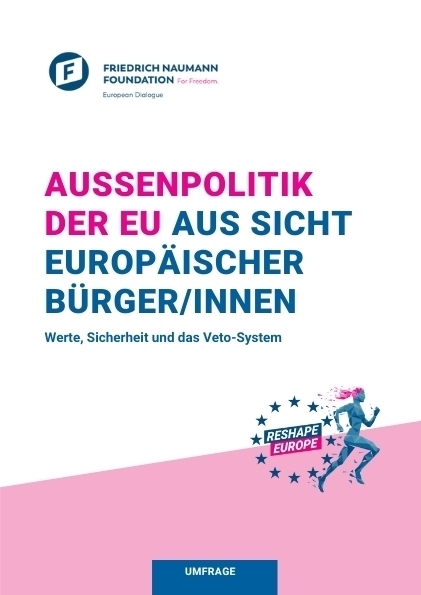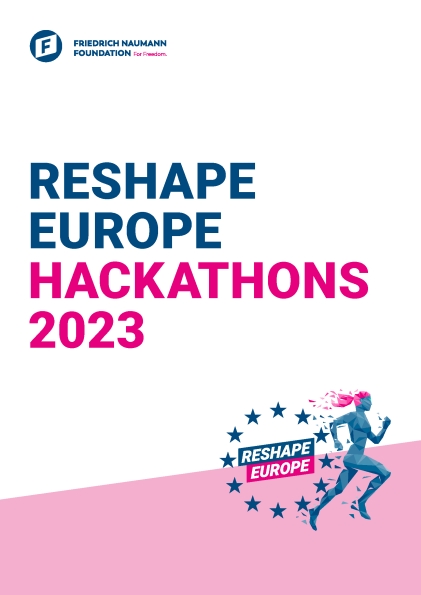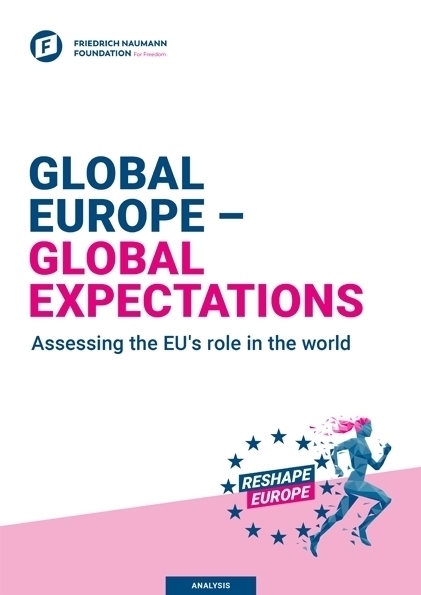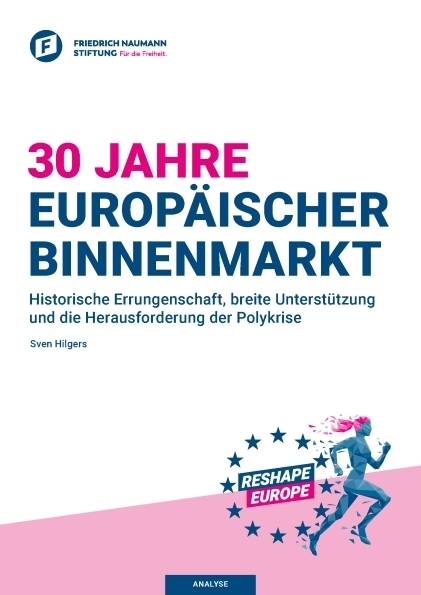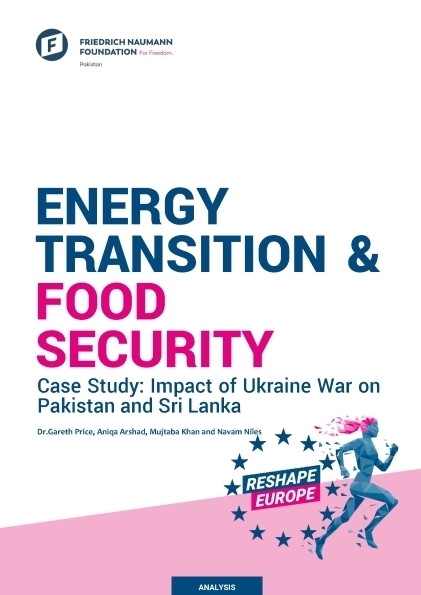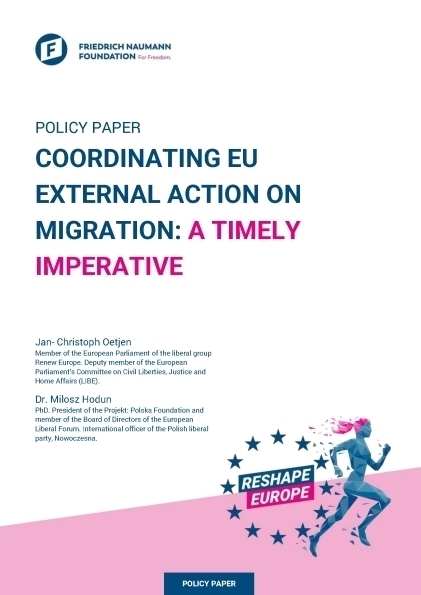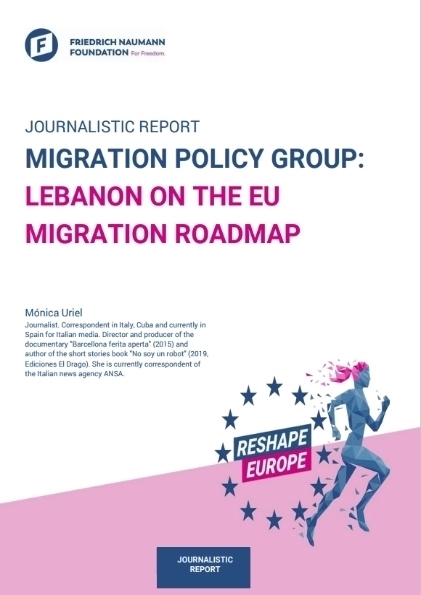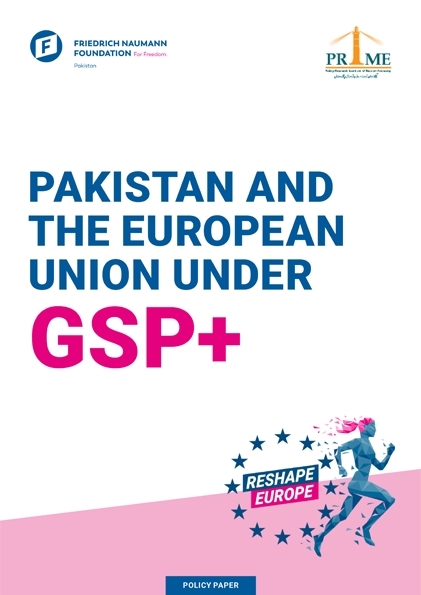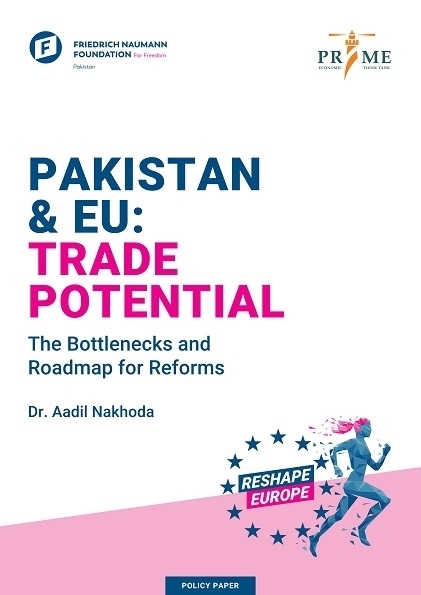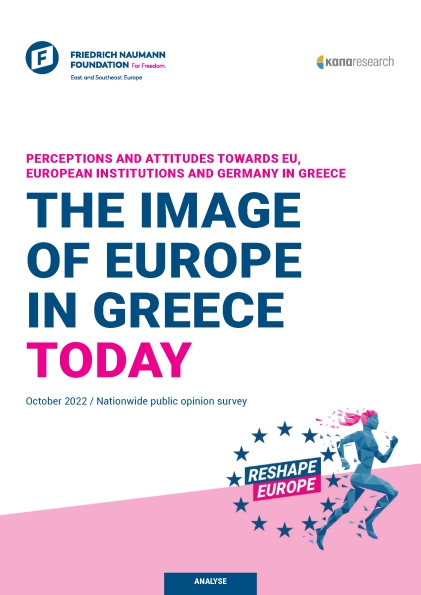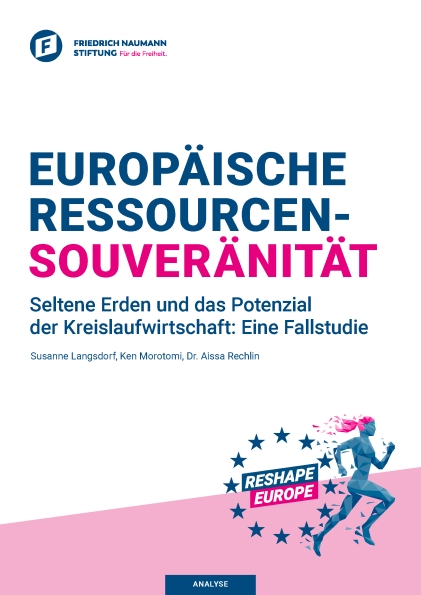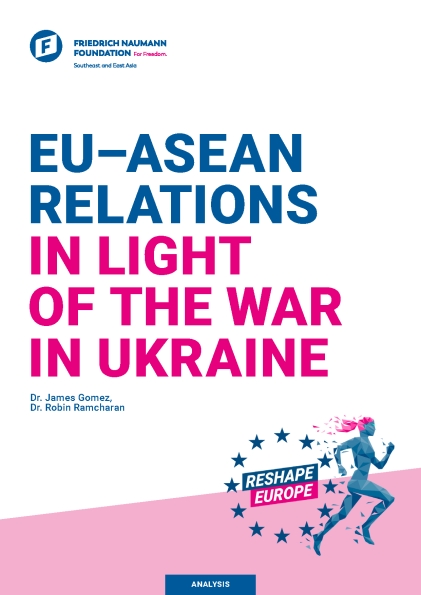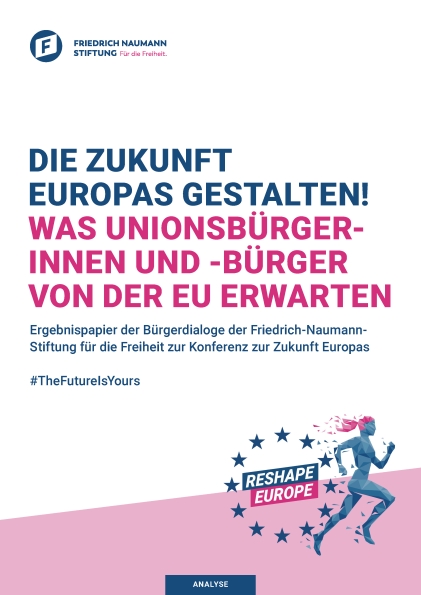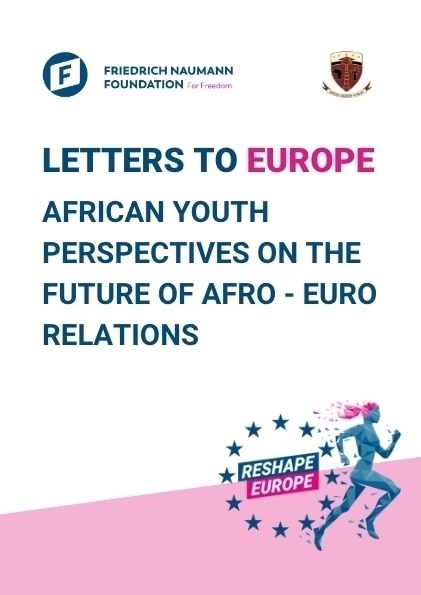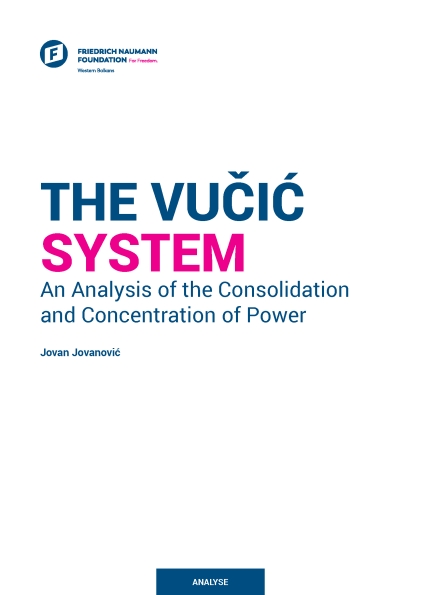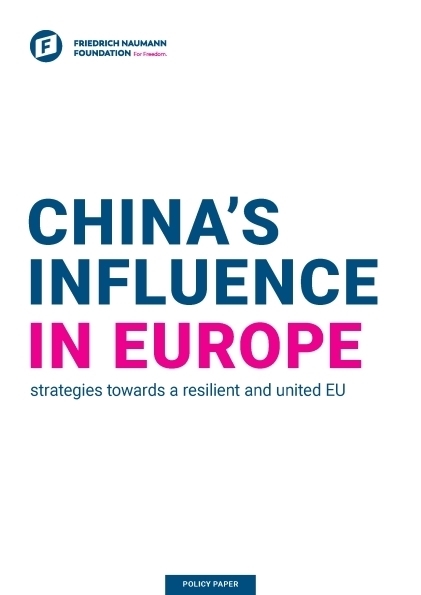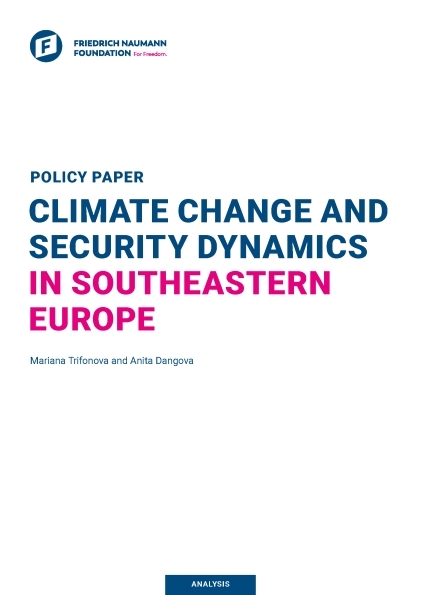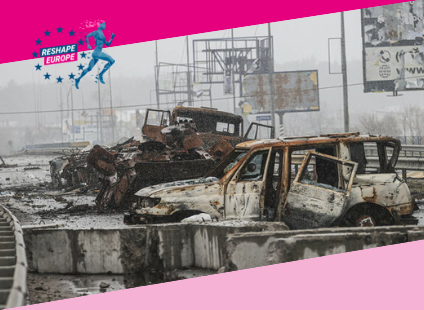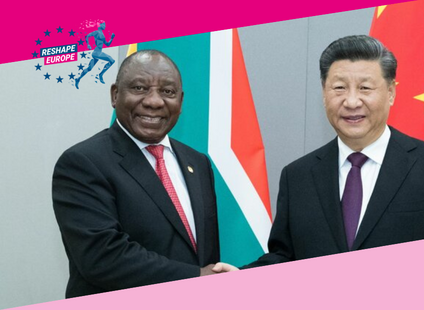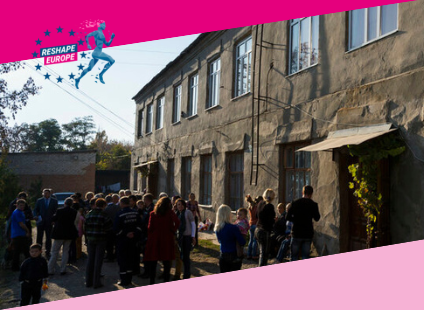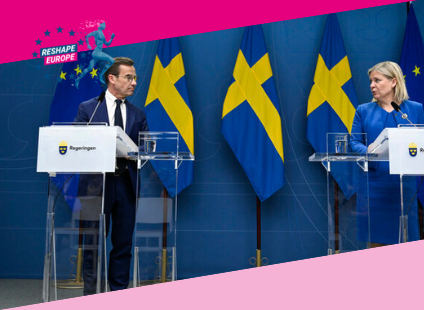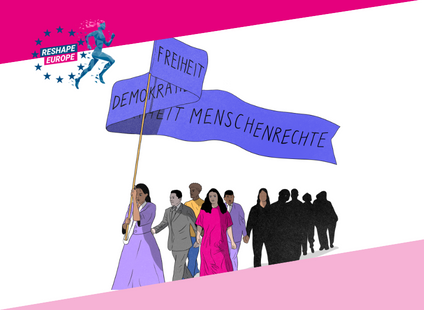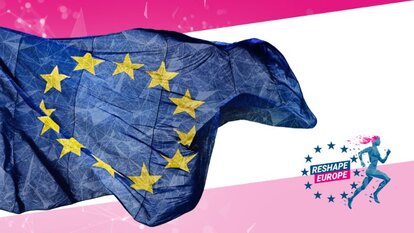Let’s reshape Europe together!
Let’s reshape Europe together!
Unter dem Motto #ReshapeEurope starten wir einen globalen Dialog darüber, wie Europa widerstandsfähiger und durchsetzungsfähiger werden kann, um den Feinden der Freiheit weltweit die Stirn zu bieten. Um das europäische Modell freier und demokratischer Gesellschaften zu stärken und gegen autoritäre Regime zu verteidigen, muss das europäische Projekt seine Strahlkraft und Gestaltungskraft zurückgewinnen - sowohl innerhalb seiner Grenzen als auch nach außen. Dazu muss die EU zum einen nach innen demonstrieren und vorleben, dass freie und demokratische Gesellschaften am besten geeignet sind, große Herausforderungen zu meistern. Zum anderen muss die EU ihre Partnerschaften mit anderen Ländern und Regionen der Welt stärken und sie nicht anderen Global Players überlassen, deren Werte dem liberal-demokratischen Gesellschaftsmodell der EU diametral entgegenstehen. Überall auf der Welt suchen wir nach Antworten, um die freie Welt zu verteidigen. Mit welchen Weltregionen sollte eine strategische Zusammenarbeit aufgebaut, vertieft oder neu überdacht werden? Wie sollten die globalen Partnerschaften und Allianzen der EU in Zukunft gestaltet werden? Diskutieren Sie mit und teilen Sie uns Ihre Ideen zu #ReshapeEurope mit!
Following the slogan #ReshapeEurope we are launching a global dialogue on how Europe can become more resilient and assertive in order to stand up to the enemies of freedom worldwide. In order to strengthen and defend the European model of free and democratic societies against authoritarian regimes, the European project must regain its radiance and creative power - both within its borders and externally. To this end, the EU must, on the one hand, demonstrate and exemplify internally that free and democratic societies are best suited to master major challenges. Second, the EU must strengthen its partnerships with other countries and regions of the world and not leave them to other global players whose values are diametrically opposed to the EU's liberal-democratic model of society. Around the world, we are looking for answers to defend the free world. With which world regions should strategic cooperation be established, deepened or reconsidered? How should the EU's global partnerships and alliances be shaped in the future? Have your say and share with us your ideas on how to #ReshapeEurope!
Veranstaltungen/Events
Publikationen zum Thema Europa
Außenpolitik der EU aus Sicht Europäischer Bürger/Innen
Die Ergebnisse der Umfrage verdeutlichen den wachsenden Wunsch der Europäer nach einer stärkeren EU- Außenpolitik.
Der Krieg in der Ukraine hat europäische BürgerInnen dazu bewogen, die Rolle der EU und ihre Bedeutung für die Zukunft der europäischen Bürger zu hinterfragen und eine veränderte Wahrnehmung zu demonstrieren, bei der die EU nun als eigenständiger internationaler Akteur angesehen wird. Die Entscheidungen der EU zu Themen wie Handel, Kartellrecht und Umweltstandards werden zunehmend als von globaler Tragweite erkannt.
Die Umfrage zeigt, dass Europäer eine EU-Außenpolitik wünschen, die auf Werten basiert und die Sicherheit, Menschenrechte und Freiheit in den Vordergrund stellt.
Reshape Europe Hackathons 2023
where groups of tech-savvy contestants tackle an IT or coding issue. This concept has gained popularity in recent years beyond the tech sphere and found great traction in the political environment. Over the course of several days (and sometimes even several stages), teams of creative and open-minded young people proposed innovative policies or project ideas on how to strengthen the EU’s role across the globe and how to foster democratic cooperation with other world regions.
Global Europe – Global Expectations
Wir erleben heute, dass die Europäische Union und ihr Modell der demokratischen Gesellschaften weltweit an Attraktivität verlieren. Der wachsende globale Einfluss von Akteuren mit Werten, politischen Systemen und Weltanschauungen, die denen der EU diametral entgegengesetzt sind, sowie die Renaissance geopolitischer Blockbildungen (wie die Stimmenthaltung einiger Staaten in der UNO bei der Verurteilung des russischen Angriffskrieges zeigt) verstärken diese Entwicklung noch. In der neuen Ära der Geopolitik, die durch die strategische Rivalität zwischen autoritären Staaten auf der einen und liberalen Demokratien auf der anderen Seite gekennzeichnet ist, sind dies alarmierende Zeichen. Um sich gegen autoritäre Regime durchzusetzen, muss das liberale Modell der demokratischen Gesellschaften der EU in der Welt wieder an Attraktivität gewinnen.
30 Jahre Europäischer Binnenmarkt
Energy Transition and Food Security
Coordinating EU External Action on Migration
Migration Policy Group
The journalistic report gathers refugee’s testimonies as well as experts approaches which shed light on how migration processes shape opportunities and economic challenges in Lebanon, as both a country of origin and destination.
Pakistan and the European Union Under GSP+
Pakistan & EU: Trade Potential
Russia's Strategy in the Med
The image of Europe in Greece today
Europäische Ressourcensouveränität
EU-ASEAN Relations in light of the War in Ukraine
Die Zukunft Europas gestalten!
Union), bei dem die 450 Millionen Unionsbürgerinnen und -bürger im Mittelpunkt stehen. Über 1400 interessierte Bürgerinnen und Bürger von Lübeck bis zum Bodensee diskutierten bei mehr als 20 Bürgerdialogen des Länderprogramms der Friedrich-Naumann-Stiftung für die Freiheit mit EU-Experten, Aktivisten und liberalen Mandatsträgern auf regionaler, nationaler oder europäischer Ebene.
Ziel war es, zusammen mit den Bürgerinnen und Bürgern Möglichkeiten auszuloten, um Europa gemeinsam zu gestalten und die EU angesichts der zahlreichen internationalen Herausforderungen - Geopolitik, Wirtschaft, Gesundheit und Migration, nur um einige zu nennen - besser, effizienter,
schlagkräftiger und weiterhin attraktiv und lebenswert für Europas Bürgerinnen und Bürger zu machen.
Dieses Policy Paper bündelt die von den Beteiligten der Bürgerdialoge aufgeworfenen Fragen sowie die skizzierten liberalen Lösungsvorschläge im Rahmen der Veranstaltungen der Friedrich-Naumann-Stiftung für die Freiheit.
Russia's Strategy in the Med
Letters To Europe
The Vucic System
China's Influence in Europe
Climate Change and Security Dynamics in Southeastern Europe
the forefront of public discourse and has climbed policy
agendas across the globe. Yet, its direct impact and implications
for the security sector remain a relatively novel area
of policy-oriented research, expanding the scope of defence
and security policy beyond traditional military operations.
Climate-related risks not only pose new challenges but also
aggravate existing threats to security. They can change the
dynamics and response strategies in existing conflicts or
lead to breakouts of instability, especially in regions marked
by significant diversity, latent insurgency and competing
geopolitical forces. Southeastern Europe (SEE) is one such
region often described as the contact point between East
and West, North and South. It also serves as a gateway to
Europe from regions such as North Africa and the Middle
East. Furthermore, its geopolitical significance has turned it
into the playground of global competition where the transatlantic
activity of the European Union (EU) and NATO meets
the economic interests as well as security aspirations of
Russia, and increasingly China.
